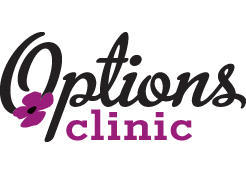Spotting the Red Flags of Dating Violence
Navigating Dating Violence and Building Healthy Relationships
Dating should be about mutual care, respect, and fun. But sometimes, what starts as a seemingly perfect relationship can take a turn toward unhealthy or even abusive patterns. Recognizing red flags early, knowing where to turn for help, and understanding the foundations of a healthy relationship can make all the difference. Let’s dive into how to navigate these crucial aspects with confidence.
Red Flags of Dating Violence
Dating violence can take many forms: emotional, physical, or digital. Here are some common red flags to watch out for:
Monitoring texts and social media: If your partner constantly demands access to your phone or social media accounts, it’s a sign of control, not love.
Excessive jealousy: Feeling jealous sometimes is normal, but if your partner gets angry or accuses you of cheating whenever you hang out with others, that’s a warning sign.
Isolation from friends and family: If your partner guilt-trips you into spending all your time with them, cuts you off from loved ones, or makes you feel obligated to keep them posted on your every move, it is another sign of control.
Pressuring for constant contact: Healthy relationships allow space. If your partner expects instant replies 24/7, it might signal control issues.
Emotional manipulation: This includes making you feel guilty for their behavior, playing mind games, or blaming you for their anger or sadness.
A Real-Life Example
Let’s meet Maya, a college junior who’s been dating her boyfriend, Ryan, for a few months. At first, Ryan seemed sweet, always texting to check in. But soon, he started demanding to know who she was talking to, insisting she share her social media passwords. Maya felt uncomfortable but didn’t want to upset him. Things escalated when Ryan accused her of not caring about him if she didn’t respond immediately.
One day, after a fight over her liking a friend’s Instagram post, Maya confided in her best friend, Zoe. Zoe gently pointed out that Ryan’s behavior was controlling and encouraged Maya to talk to the school’s guidance counselor. With support, Maya ended the relationship and learned how to set boundaries. It wasn’t easy, but she felt relief and gained clarity about what she deserved in a relationship.
After ending the relationship, Maya visited Options Clinic to learn more about building healthy relationships, how to advocate for herself, and what to look for in a boyfriend.
Steps for Victims
If you’re experiencing dating violence, remember, you’re not alone and help is available. Here’s what you can do:
Reach out to someone you trust. Talk to a friend, family member, or school counselor about what you’re going through. Sharing your feelings is the first step toward finding support.
Contact hotlines for guidance: Call or text the National Domestic Violence Hotline (1-800-799-7233 or text START to 88788). They’ll connect you with resources and help you plan a safe exit if needed.
Connect with local resources: If you live in Helena, the Friendship Center can help. Reach out to them for counseling, advocacy, and support.
Trust your instincts: If something feels wrong, it probably is. You have the right to feel safe and respected.
Lean on peers: Friends can be a source of strength. If you’re unsure how to start the conversation, try saying, “I need to talk about something personal. Can you listen?”
Healthy Relationship Behaviors
Knowing what a healthy relationship looks like can help you recognize what you deserve. Here are key traits:
Respecting boundaries: Your partner doesn’t pressure you into doing things you’re uncomfortable with, whether it’s physical affection or sharing private information.
Resolving disagreements respectfully: It’s normal to disagree, but it’s important to listen to each other without yelling, name-calling, or threats.
Practicing active listening: Both of you take turns sharing thoughts and feelings without interrupting or dismissing each other.
Mutual trust and support: Your partner encourages your independence, goals, and friendships outside the relationship.
If you’d like to learn more about setting healthy relationship boundaries, give Options Clinic a call at 406-422-1011.
How to Support a Friend in an Unhealthy Relationship
Being there for a friend can make a world of difference. Here’s how:
Listen without judgment: Say, “I’m here for you no matter what. You deserve to feel safe and happy.”
Validate their feelings: Acknowledge their emotions without pushing them to take immediate action.
Offer resources: Share hotlines, local centers like the Friendship Center or Options Clinic, or suggest talking to a trusted adult.
Encourage self-reflection: Gently ask, “How does this relationship make you feel?” or “What do you want from a partner?”
Be patient: Leaving an unhealthy relationship is a process. Let them move at their own pace while reminding them they’re not alone.
Self-Reflection for Healthy Relationships
Take a moment to evaluate your current relationship. Ask yourself:
Do I feel safe expressing my thoughts and feelings?
Does my partner respect my boundaries and individuality?
Do we resolve conflicts in a fair and respectful way?
If the answers are no, it might be time to reassess the relationship and seek support.
The Path to Healing and Hope
Breaking free from an unhealthy relationship can be tough, but it’s also empowering. Recovery involves surrounding yourself with supportive people, focusing on your self-worth, and learning to trust again. Remember, you deserve a relationship that uplifts and respects you.
For immediate support, contact the National Domestic Violence Hotline at 1-800-799-7233 or text START to 88788. Locally, the Friendship Center is here for you 24/7 at 406-442-6800.
Don’t suffer alone. Help is just a phone call away.
